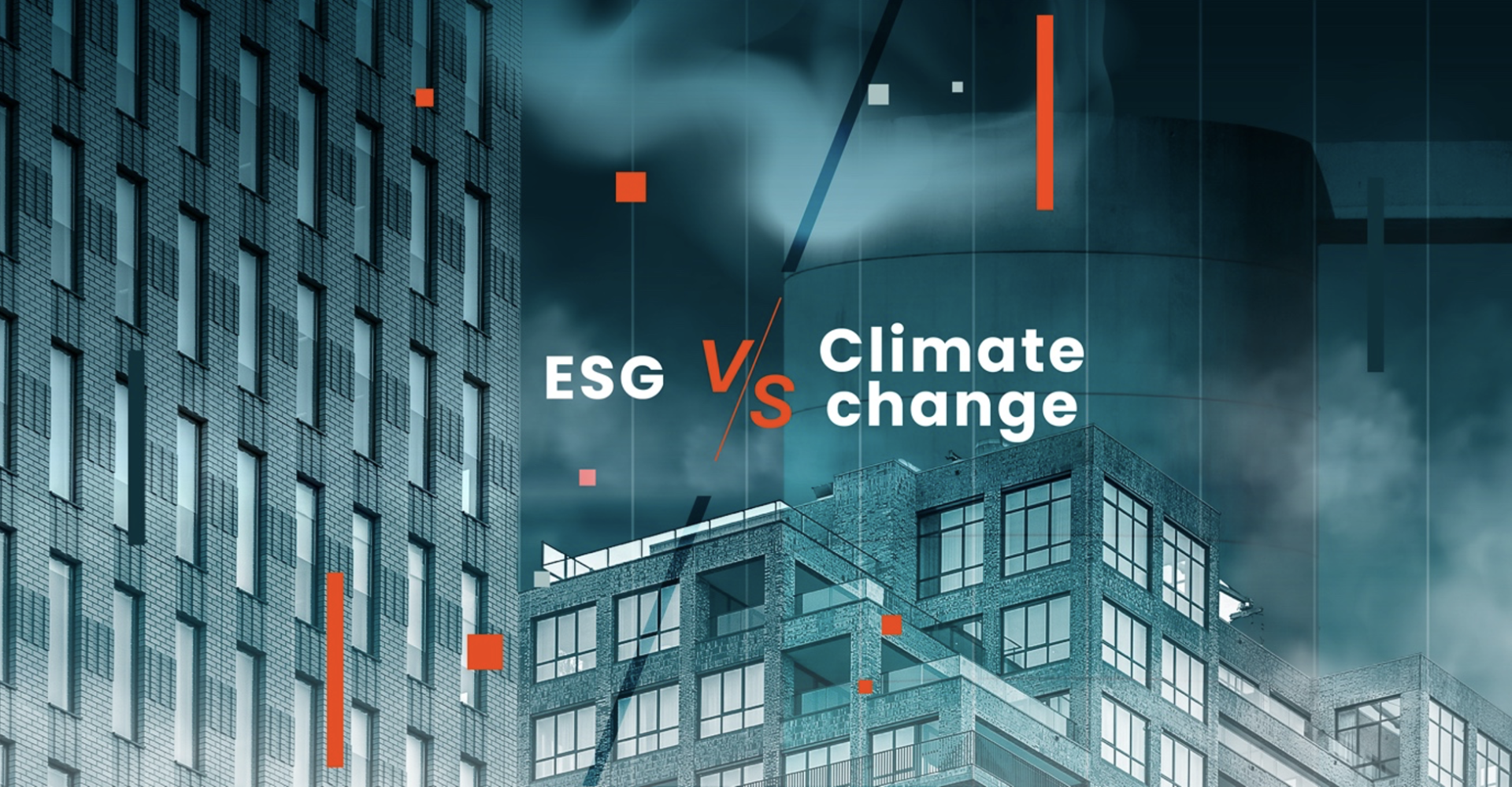How is Climate Change propelling ESG to an Undeniable Priority?

While strides have been made to address climate change, there is a growing consensus that current efforts fall short. Recognizing the urgency, Environmental, Social, and Governance (ESG) considerations have emerged as focal points in the agendas of corporations, investors, and the public sector, signaling a heightened commitment to more robust action against climate change.
The link between climate change and the increasing emphasis on ESG is undeniable, as both converge to shape a more sustainable and resilient real estate future. What is great about this shift is that it signifies a growing recognition that a company's success should not solely be measured by profits but by its contributions to ESG considerations.
The Intersection of Climate Change and ESG in Real Estate
According to the UN Environmental Program, the real estate sector produces around 30% of the world's annual greenhouse gas emissions and, on top of that, consumes nearly 40% of the world's energy. Reducing emissions and consumption is therefore a necessity and it can be achieved through existing technologies with positive economic returns.
Climate change is becoming a top priority for the real estate industry. Investors are making net-zero commitments as regulators are continuously developing reporting standards and governments are passing emission-caps and benchmarking regulations. However, this is more than the idea of corporate social responsibility – this is about risk management, operational cost efficiency, and market valuation. For example, the accelerating consequences of climate change such as storms, floods, fires, and extreme heat mean physical climate risk is an important part of risk strategy for asset holders.
To address imperatives around risk, Opex, and valuation, real estate managers must:
Incorporating physical climate change risks into asset and portfolio valuations
Decarbonizing real estate assets and portfolios to meet regulation and market benchmarks
Creating new sources of value and revenue related to the climate transition to create livable spaces that attract occupiers
Real estate managers need to build climate intelligence to understand the impact of climate risks on assets and markets, considering both physical and transition risks. Decarbonization is essential and involves a range of strategies, including low-carbon development on new builds, retrofits, improved energy efficiency in and out, and technology upgrades. It is therefore essential to understand an asset’s current emissions, set targets, identify decarbonization levers, execute the plan, and track progress.
If you ever wondered how ESG can play a major role in fighting climate change, here are the key factors:
Risk Management: Companies are increasingly exposed to physical and transitional risks related to climate change. Physical risks involve the direct impact of climate-related events, such as property damage. Transitional risks arise from the implications of a shift to a low-carbon economy, including policy changes, market shifts, and technological advancements. Addressing these risks is a crucial aspect of ESG integration.
Regulatory Pressure:Governments worldwide are enacting stricter regulations to curb greenhouse gas emissions, promote renewable energy, and encourage sustainable practices. Businesses that fail to align with these regulations face legal and financial consequences, making it imperative for companies to consider ESG criteria, including environmental impacts.
Valuation:Investors are increasingly factoring ESG performance into their decisions by seeking out companies that demonstrate a commitment to reducing their carbon footprint, improving energy efficiency, and adopting sustainable practices. Failing to meet these expectations can result in reduced access to capital and a damaged reputation.
Occupier Expectations:Consumers, residents, employees – our societyis becoming more conscious of the environmental and social impacts of the products they buy and the companies they support. Businesses that demonstrate a genuine commitment to sustainability are more likely to attract and retain customers and talent.
BuildingMinds: Driving ESG sustainability in real estate
BuildingMinds plays a pivotal role in helping real estate companies and property owners manage their buildings and portfolios in a more sustainable way. Our platform offers tools to monitor energy consumption, water usage, and waste generation, enabling companies to identify inefficiencies and implement measures to reduce their environmental impact.
How do we do so?
BuildingMinds leverages innovative technology and scientific methods to help real estate managers reach their sustainability objectives.
Retrofit Recommender: This feature is a trained machine-learning model for property and asset managers. Using datasets from approx. 1,00 real retrofits and their outcomes, the model helps identify capital improvement opportunities (retrofits) in buildings by considering various factors like construction year, area, asset type, and energy consumption data. It generates retrofit scenarios aligned with user objectives, such as CapEx or CO2 reduction goals. More information on our Retrofit Recommender can be found via this link.
Emission factors: Coefficients that indicate how much greenhouse gases (GHGs) are released into the atmosphere for a given activity. These factors vary based on resource types like electric energy, waste, district heating, and cooling. Check out our emissions factors and see if your assets are on track.
CRREM pathway (1.5°C and 2°C):Science-based carbon emission targets. Leveraging the CRREM (Carbon Risk Real Estate Monitor) pathways involves setting goals for building carbon emissions (carbon intensity) and net energy demand (energy intensity). BuildingMinds overlays these rigorous targets with an asset’s specific decarbonization goals such as retrofit plans to model stranding year under different scenarios.
Do you want to know more on how BuildingMinds is a driving force in ESG sustainability? Take a look at our blog section and request your free trial now.


